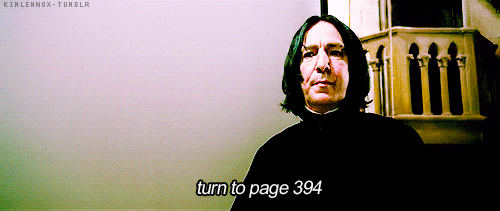
Wednesday, October 2
What Are We Doing Today?
-
Today's Goals
-
Warm Up
-
Reflective Overview Discussion
-
Midterm Reflective Overview Samples
-
Homework

Today's Goals
Learning Outcomes
-
Demonstrate their ability to use their analyses of rhetorical situations to identify options and to make appropriate choices that will enable them to use writing to achieve specific purposes
-
Identify how their views of writing have changed as a result of the work they have done in the course
Habits of Mind
-
Creativity is fostered when writers are encouraged to take risks by exploring questions, topics, and ideas that are new to them
-
Curiosity is fostered when writers are encouraged to use inquiry as a process to develop questions relevant for authentic audiences within a variety of disciplines
Key Terms
-
Genre and genre conventions
-
Discourse Communities and / or Activity Systems
Warm Up
-
Read for your History Quiz today!
Midterm Reflective Overview-Portfolio Discussion
The Reflective Overview (RO) is the most important piece of writing you will do for a portfolio.
The RO invites you (some might say "challenges you") to help your instructor(s) understand how to evaluate / think about / "read" the materials in your portfolio. When you think of the RO in this way, it is also your opportunity to explain what you might not have done, or how you fulfilled expectations in ways that are different from the norm.
Because the RO is an important piece of writing—it is the first thing your instructor will read before examining the contents of your portfolio, expecting the RO to help her or him make sense of all the other work you did—you will want to produce more than one draft, sharing with classmates so you can consider revisions to make this piece more effective.
Without a reflective overview, a portfolio is nothing more than a collection of artifacts, and readers of the portfolio are forced to make sense of these artifacts as they see fit. With the overview, the writer takes control of her or his portfolio, helping readers understand the portfolio in the ways that the writer intends it to be understood.
Suggestions:
These are not required questions as part of a template, but merely questions designed to help you think about your work:
-
What was the assignment and the assignment requirements?
-
What did you learn from this assignment and how?
-
How has your writing improved as a result of completing this assignment?
-
How have your information literacy skills improved as a result of completing this assignment?
-
How has this assignment or set of assignments changed your understanding/beliefs about writing?
-
What insight did you achieve from reflecting on this writing?
-
How can you apply this learning in your other classes or in your future career.
-
How do you think you can improve in this area, for this particular Student Learning Outcome, if you don’t feel you have yet mastered it? What can you do to move towards mastery?
In each section when discussing the SLO, state whether or not you have achieved it, offer evidence to support your claim, and explain clearly how your evidence serves as evidence, and connect it back to what you have learned from the experience.
-
I believe I have achieved SLOx...
-
In support of this claim, I offer the following evidence...
-
This is serves as evidence because....
-
I have learned that....
In Short...
This reflective overview will help you to connect the writing, reading, and research you are doing with the learning goals for the course. The reflective overview will be an extensive piece of writing introducing your portfolio and will include ample and appropriate evidence. Your reflective overview will show and tell how the materials you have included have broadened your understanding of writing, and the extent to which you have achieved the learning goals for English 1302.
In short, the purpose of this reflective overview is for you to demonstrate that you have mastered, or are on your way towards mastering, the student learning outcomes, habits of mind, Naming What We Know threshold concepts, and information literacy threshold concepts:
Homework
A) Read (for Wednesday 10.9)
-
Naming What We Know Threshold Concept 4.0 "All Writers Have More to Learn"
-
Naming What We Know Threshold Concept 4.2 "Failure Can Be an Important"
-
Naming What We Know Threshold Concept 5.2 "Metacognition is not Cognition"
B) Looking Ahead:
-
Work on your Discovery Logs!?
-
Why am I asking you to do this?
-
-
Work on revising your Portfolio Practices
-
Why am I asking you to do this?
-
-
Portfolio Practice #4: due by class on Friday, 10.11
-
FINAL DRAFT OF THE IA IS DUE ON OCTOBER 7TH BY 2PM IN WRITING & RHETORIC'S BLACKBOARD!
C) For Monday, October 7th: I have jury duty. Yay!!! Therefore, I will not be on campus that day. Please work on your IA: Connecting the Past and the Present. Also, get a head start on the PP#4 since we will not be doing that in class on Friday.
D) Need help? Come see me!
I have both Writing Center and Office Hour times we can meet. Let me know if you want to come by or how to make an appointment for the Writing Center!
E) Integrating Sources
